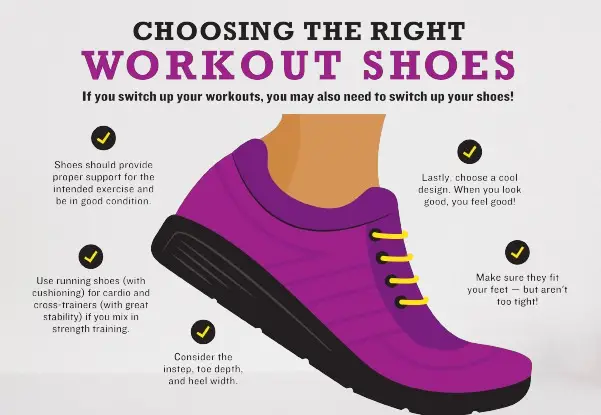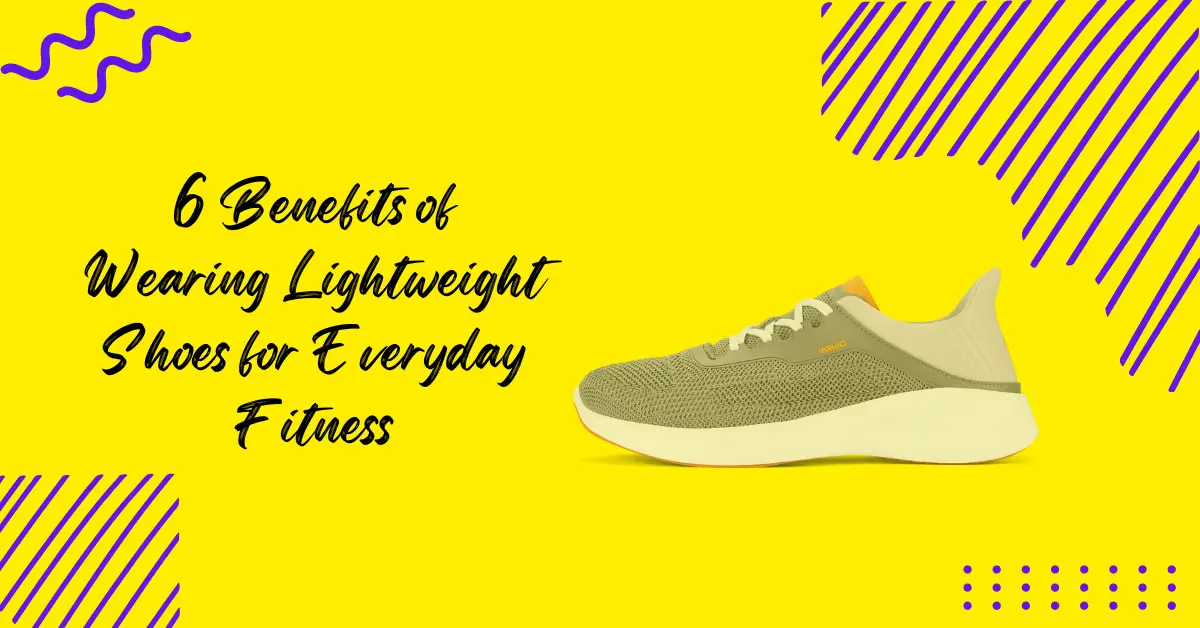Lightweight shoes have gained popularity in the fitness world for quite some time. This is for good reason. Anyone needs the right footwear to lead an active life. If you’re hitting the gym or going for a walk or run lightweight shoes play an important role. They help in performance and comfort.
Let’s explore why lightweight shoes might suit your everyday fitness routine.
What Do We Mean By Lightweight Shoes?
When we talk about lightweight shoes it means shoes that are much lighter in weight than regular sports shoes. Lightweight shoes weigh 5 to 10 ounces. Regular sports shoes weigh about 12 to 15 ounces. Materials used to make lightweight shoes are mesh fabrics and EVA foam which helps in reducing weight.
Lightweight shoes aim to reduce stress on your feet. This lets you move more. Compared to bulkier shoes lightweight ones often have slim designs. They focus on speed and flexibility.
6 Benefits of Using Lightweight Shoes for Exercise
1. Better Performance
Lightweight shoes have a huge impact on increasing or improving your performance. They are weightless. This allows you to move faster and more easily. This feature is ideal for tough workouts. It is great for activities that require quick moves. Using these shoes saves you energy. It also allows you to exercise longer. You will get better results.
2. Reduced Risk of Injury
Lightweight shoes greatly reduce the chances of injury. They also put less stress on joints when you play sports like running or jumping. These shoes give you enough support. They do not feel too heavy. This helps maintain proper body alignment. It lowers the risk of problems like shin splints and stress fractures.
3. More Comfort
Plus, lightweight shoes are far more comfortable. To keep feet dry and cool during intense exercise, they frequently use materials that allow air to pass through. Because these shoes are bendy feet can move more. This not only gives comfort to the user but also prevents foot problems like blisters or swollen feet
4. Better Posture and Form
Light shoes improve performance but also correct posture because these shoes maintain natural foot shape and help keep the body straight. Bad posture affects performance. It can also lead to injuries over time. If you use good lightweight shoes they can heal your posture. They can reduce your risk of getting hurt. When you maintain a perfect balance between posture and performance, it means you perform more. You get better results in any game.
5. More Versatility
Lightweight shoes are highly beneficial for all types of activities like running weightlifting, yoga, and even high-intensity interval training. These shoes can handle whatever you throw at them. They are bendy and simple. You can move around easily. This means you do not need to buy different shoes for each type of workout
6. Faster Recovery Times
Putting on lightweight training shoes has an added perk. You bounce back faster after workouts. Your feet and legs don’t have to work as hard. This means less wear and tear on your muscle tendons and joints during and after exercise. This leads to quicker recovery. You may start your daily schedule sooner and can stick to a regular workout plan without long breaks. In this way you won’t be sore or hurt.
What To Look For In Good Lightweight Shoes?
When you’re shopping for good lightweight shoes keep these key things in mind
- First, consider comfort. A shoe should fit well and feel nice on your feet. Look for enough cushioning. This can make a big difference when you walk or run.
- Next, think about support. Support is key to stopping injuries and keeping you comfy. A good lightweight shoe should give enough arch support. It should fit around the middle of your foot to keep it steady during different activities.
- Then, look at the material. The main purpose of lightweight shoes is to be as light as possible. Even so, shoes should be made of high-quality materials. These materials can withstand daily workouts. They should also last longer.
- Fabric that Breathes, If you are doing a workout or participating in sports activity Breathability plays a very important role. Materials like mesh and other breathable fabrics help control body temperature. They keep you from working out too much.
- Good Grip and Traction, A solid lightweight shoe should give you a reliable grip to stop you from slipping and falling. Shoes with rubber outsoles provide the best traction on any surface. You should wear such shoes. This way you can perform easily on any surface.
- Stylish Design, Not only does it measure how well the shoe performs. It also measures how well the shoe looks. So, select one that suits your personality. Choose lightweight shoes in different styles and colors.
Considering these elements will assist you with tracking down an ideal lightweight shoe that meets your needs.
Factors to Consider When Buying Lightweight Gym Shoes

- Understanding Your Foot Type
Keep in mind foot type—neutral overpronated, or underpronated—when picking shoes. This insight helps make sure you get the right support and cushioning for your feet. It also helps to prevent injuries. Knowing your foot type can lead you to better choices. Pick shoes that take care of your requirements. Comfort is key for long periods of wear. Make sure shoes fit well. They should provide adequate room for toes.
- Evaluating the Shoe’s Fit
A good shoe fit matters a lot. Your shoes shouldn’t squeeze or slip off your feet. You should be able to move your foot without pain. Blisters are not good to deal with.
- Checking the Shoe’s Stability
Stable shoes have a big impact on gym workouts. Make sure your shoes give you enough support to exercise. Proper footwear can enhance performance. It can also prevent injuries.
Bad shoes can lead to discomfort. They may cause blisters or foot pain. This can ruin your workout experience. It is important to choose the right shoes for your activity.
Look for shoes with a sturdy sole. They should have good cushioning and fit well. A proper fit is crucial. When shoes are too tight or loose it affects how you move.
Also, consider the type of exercise you will be doing. Running shoes are different from cross-training shoes. Each type is designed for specific movements. Finding the right pair can make a noticeable difference.
- Considering the Type of Exercise
Each workout needs its kind of shoe. Choose shoes that match your exercise plans. For instance, pick shoes that suit running, weightlifting, or other training you do.
- Budget Thoughts
You might want to buy the cheapest shoes. But spending more on good light shoes can benefit you in the long run. Consider your budget. Focus on shoes’ features and durability.
- Brand Name and What Others Say
Check the brand’s name and read what other people say about shoes This can give you insights into shoes’ performance comfort and longevity
Wrapping Up
Using lightweight shoes in your workout and game routine offers many advantages. Understanding which factors contribute to shoes’ lightness is important. Some features matter most. This will help you make a smart choice. You can then pick the best pair of shoes for your needs.

